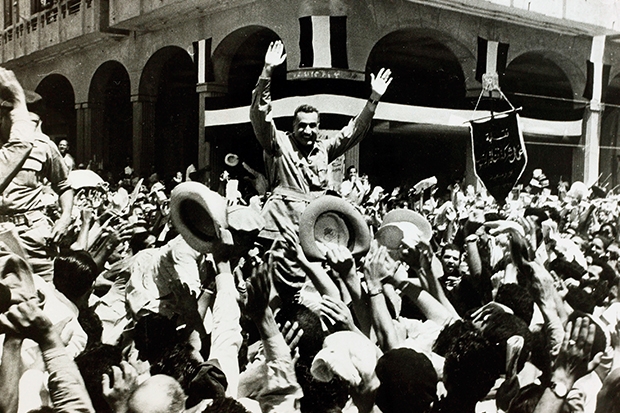Until it was overtaken by the still more disastrous debacle in Iraq, the Suez Crisis of 1956 was widely judged to be Britain’s worst postwar foreign blunder. Not only, to use Talleyrand’s phrase, a crime, but an error of monumental proportions.
The deceitful plot by Britain and France, in secret collusion with Israel, to invade Egypt disguised as peacemakers; restore the recently nationalised Suez Canal to western control; and overthrow Egypt’s charismatic nationalist leader Gamal Abdel Nasser into the bargain, went horribly and fatally wrong. Britain’s humiliating retreat, forced by a disapproving United States, marked the effective end of both the British and French empires, and raised the US to undisputed hegemony over the non-communist world.
Despite his wartime partnership with Churchill, President Eisenhower, horrified by the naked resort to imperial force, pulled the plug on the intervention, not least by approving a run on the pound. If there ever was a transatlantic special relationship, after Suez it was clear that Britain’s role in it was to be Uncle Sam’s obedient bitch.
Soviet Russia, America’s Cold War rival, was unable to take advantage of the bitter divide between its western ideological enemies, as its tanks were too busy at the same time that autumn with the bloody suppression of a popular uprising in Hungary, one of its downtrodden eastern European satellites. These twin crises are the subject of Alex von Tunzelmann’s brisk and grippingly readable 60th anniversary narrative history.
It is unfortunate that the author or her publisher had the notion of yoking Suez and Hungary together in one book merely because they happened simultaneously. The brutal crushing of a popular upsurge against totalitarian tyranny in mittel Europa, and the wheezy last gasp of clapped out European imperialism in the Middle East, are so different that, though Von Tunzelmann makes ingenious efforts to find parallels between them, they do not really hang together. The constant cutting between embattled Budapest and the stagnant waters of a blocked Suez Canal is confusing, and distracts from von Tunzelmann’s main theme: the moral bankruptcy and inept duplicity of Britain’s rulers in general, and its prime minister Sir Anthony Eden in particular.
It is obvious that the author’s main interest is in Suez rather than Hungary, about which she is fairly perfunctory, telling us little that is new. But when she gets her teeth into the iniquities and absurdities of a sick Eden’s drug- and bile-fuelled follies, and Washington’s contemptuous slapping down of its old ally, her writing catches fire, and her scornful prose roasts the remnants of the poor old PM’s reputation beyond repair.
The book could have been subtitled ‘A Tale of Two Baronets’, for if von Tunzelmann’s main villain is Eden, a victim of his own monomania, her hero is another Sir Anthony, the Foreign Office minister of state Sir Anthony Nutting. Nutting was a career FO mandarin, an Arabist, and a dripping wet Tory grandee of the Cameron class who saw clearly that Eden’s personal grudge match against Nasser — ‘I want him murdered,’ Eden told him — could only end in catastrophe when it became Britain’s covert foreign policy agenda.
Since Nutting’s boss, the foreign secretary Selwyn Lloyd, was a self-confessed xenophobe who had rarely been abroad and blindly followed Eden into his abyss, it fell to the fox-hunting baronet to offer the only opposition within the government as it raced towards war. His stance cost Nutting his career. His bleakly disillusioned inside account of the affair, No End of a Lesson, could have been read with profit by a third Anthony — Blair — as he geared up to invade Iraq half a century later: another senseless adventure launched by another vain poseur of a premier on a tide of lies and illusions.
For the most depressing of conclusions to be drawn from this timely and clearly written reappraisal is that Britain’s policy makers did not, contra Nutting, draw the necessary lesson from Suez: think twice and then think again before undertaking armed intervention in the Middle East. Five decades on from Suez, the fools, this time including fools in Washington, reprised that folly all over again.






Comments